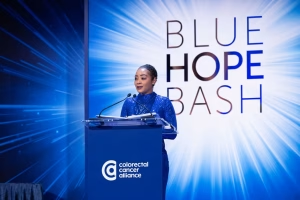Supreme Court rejects multibillion-dollar Purdue Pharma opioid settlement that shielded Sackler family
The Supreme Court on Thursday rejected a controversial settlement that would have sent billions of dollars to treatment programs and victims of the nation’s opioid epidemic but also shielded the Sackler family from future lawsuits despite the fact that it made its fortune selling prescription opioids.
Justice Neil Gorsuch wrote the opinion for a 5-4 majority.
“The Sacklers seek greater relief than a bankruptcy discharge normally affords, for they hope to extinguish even claims for wrongful death and fraud, and they seek to do so without putting anything close to all their assets on the table,” Gorsuch wrote. “Describe the relief the Sacklers seek how you will, nothing in the bankruptcy code contemplates (much less authorizes) it.”
Justice Brett Kavanaugh, a fellow conservative, said in dissent that the court’s decision will have a “devastating” impact on thousands of victims of the opioid epidemic.
“As a result, opioid victims are now deprived of the substantial monetary recovery that they long fought for and finally secured after years of litigation,” he wrote in the dissent, which was joined by Chief Justice John Roberts and liberal Justices Sonia Sotomayor and Elena Kagan.
Kavanaugh went on to implore Congress to amend US bankruptcy law to “fix the chaos that will now ensue” from the court’s ruling.
“The court’s decision will lead to too much harm for too many people for Congress to sit by idly without at least carefully studying the issue,” Kavanaugh wrote.
On a court that often focuses first and foremost on the text of the law, Gorsuch noted that the bankruptcy law didn’t specifically give authority to courts to allow third parties like the Sacklers to avoid future liability. And while he acknowledged that the decision Thursday “may cause Purdue’s current reorganization plan to unravel,” Gorsuch wrote that outcome would considerably increase legal exposure for the Sacklers and may force the family to negotiate better terms.
“If past is prologue,” Gorsuch wrote, citing an argument from the Justice Department, “there may be a better deal on the horizon.”
The case dealt with the fate of a company and its leaders who produced and promoted a highly addictive drug, OxyContin, in the early days of an opioid crisis that has claimed the lives of hundreds of thousands of Americans and shattered many more.
As the nation continues to grapple with the opioid epidemic, the Sackler family had agreed to pay $6 billion to families and states as part of an agreement to wind down Purdue Pharma, the maker of OxyContin. In exchange, the Sackler family would be immunized from future civil liability claims.
Purdue marketed OxyContin as a safer and less addictive painkiller, encouraging doctors to prescribe the drug over longer periods of time and for more routine injuries. The drug’s success fueled the Sackler fortune, and the family became known for philanthropy.
But a series of lawsuits and news accounts alleged the family continued to promote OxyContin even after it learned of the drug’s addictive properties. Not only did many Americans become addicted, but some turned to heroin and other opioids when they could no longer fill their prescriptions.


